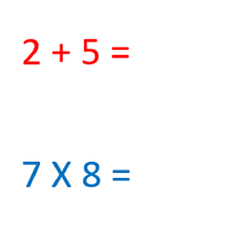Though it appears very simple facilitating online tutoring is a complex task. The tutoring websites act as go-betweens with search facilities. This is a fast-growing paradigm that offers incredible learning opportunities for bewildering topics.
Though this methodology was in the picture for a long time, it was during the pandemic that more and more students began to take lessons online. Working from home and learning from the cozy comfort of one's room offers many benefits, the greatest being flexibility.
Growing at the rate of CAGR 15.8% the market is expected to reach a volume of 196 USD by 2027. The exponential growth is facilitated by advancing technologies and an ever-increasing student base, especially in the APAC region and particularly in India and China.











 Full Day Safari in Bandhavgarhon 08/29/2023
Full Day Safari in Bandhavgarhon 08/29/2023
 SEO Campaign: Website Overhaulon 02/13/2023
SEO Campaign: Website Overhaulon 02/13/2023
 Indian Food It Is Not All Curryon 02/08/2023
Indian Food It Is Not All Curryon 02/08/2023
 How Tiger Tourism is Organized in India?on 02/07/2023
How Tiger Tourism is Organized in India?on 02/07/2023



Comments
Very true a tutor should not help cheaters and should charge an optimum fee.
One thing to remember before tutoring for yourself is to charge enough. I was once told by another mathematician that to charge too little indicates to your perspective clients that you know the value of your knowledge, and if you undervalue your services it indicates you are valuing at your skill level, even though you may be much more highly skilled. So charge enough of lose clients.
The college where I taught was evaluating an online service for tutoring, and the math faculty had to decide if the service was worth using. We were given passwords, so I entered the site, one by a major company, and pretended to be a student stuck in calculus. I pretended to be finishing a take home test, and after pretending to not get the technique the tutor eventually worked the problem. I recommended rejecting the service that helped students cheat. In fact, the easier technique was missed by the tutor in favor of a longer technique. Students paid by the hour. So, be careful which companies you use or work for. A faculty member cannot become associated with a site that helps with cheating. Just something worth thinking about. Academic honesty should remain the tutor's strong rule.
I am sorry but I have no statistics as regards the success rate of these paradigms.
The articles COVID disruptions hurt student progress at all grade levels, GAO says for K-12 Dive June 13, 2022; and Student math scores are down from pre-COVID levels, the National Report Card finds for NPR online Oct. 24, 2022, focus upon lower academic performances among first- through twelfth-grade students in the United States in 2020, 2021 and 2022.
Has that been the trend among same-aged subcontinental students?
Have we any indications yet as to whether students do better, the same or worse in in-person or online courses?
Schools are defined as elementary, middle, and high school.
The second sentence in the first paragraph to your first subheading, More on Online Tutoring E-Tutoring, indicates that "Online tutoring virtually replicates institutionalized classrooms in schools and colleges without the subjects having to be physically present."
How is "schools" being defined there? Is it for the pre-college, pre-university schools, such as the world equivalents of what the United States has from elementary school, through middle school, to high school?
Would there be an age limit for the online tutoring?